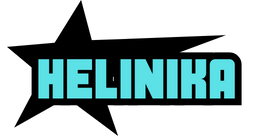Success in the adult workplace isn’t only defined by the technical skills and qualifications you bring to the table. While being proficient in your field is essential, the ability to effectively communicate, collaborate, and adapt to change can make or break your professional growth. These qualities, known as soft skills, are critical for fostering a positive, productive, and collaborative work environment.
This blog highlights the top soft skills that matter most in today’s adult workplace and why they are indispensable for achieving long-term success.
Communication Skills
Communication lies at the heart of every business interaction. Strong verbal and written communication skills help convey your ideas clearly, ensure understanding among team members, and avoid costly mistakes.
The Key to Effective Verbal Communication
- Active Listening: Focus on genuinely understanding what others are saying, rather than just waiting for your turn to speak. This strengthens relationships and aids in problem-solving.
- Clarity and Confidence: Whether you’re presenting in a meeting or speaking privately with a colleague, clear, concise, and confident delivery ensures your message is well-received.
- Tone Awareness: Tailor how you speak to your audience. Whether you’re addressing a client or delivering feedback to a team member, understanding your tone’s impact is critical.
Tips for Written Communication
- Be Clear and Concise: Whether you’re drafting an email, a report, or a presentation, clarity trumps wordiness. Simplify your language and avoid jargon.
- Proofread for Accuracy: Errors in written communication can harm your professional reputation. Always double-check grammar and spelling before hitting “send.”
- Choose the Right Medium: Not all messages should be conveyed through email. For sensitive or complex topics, one-on-one conversations may be more effective.
Teamwork and Collaboration
The ability to work well in teams is fundamental in nearly all organizations. Employers highly value team players because collaborative teams often produce better results.
Effective Teamwork Strategies
- Foster Mutual Respect: Respect team members’ ideas and contributions, regardless of their role or seniority. Respect fuels a positive team dynamic.
- Communicate Openly: Encourage open and honest communication. Sharing ideas, challenges, and feedback in a constructive way enhances performance and trust.
- Take Responsibility: Own your tasks and support the team’s goals. When everyone takes accountability for their role, the team as a whole thrives.
Collaboration in Action
For collaboration to work, it’s important to align around a shared goal. Utilize collaboration tools like Slack, Trello, or Microsoft Teams to stay organized and maintain transparency in remote or hybrid workplaces.
Problem-Solving
Adult Workplace challenges are inevitable—but your ability to address and resolve them effectively defines your value as an employee.
The Steps to Productive Problem-Solving
- Define the Problem: Start by identifying and understanding the issue. Gather as much information as possible to diagnose the root cause.
- Generate Solutions: Brainstorm potential solutions and evaluate their feasibility. Consider creative thinking methods if the solution isn’t immediately obvious.
- Evaluate Risks and Benefits: Think critically about the pros and cons of each solution. Can one approach minimize risks and maximize overall results?
- Implement and Review: After choosing a solution, act on it. Review the process afterward to identify lessons learned for next time.
Cultivate a Problem-Solving Mindset
Great problem solvers maintain a calm, objective attitude under pressure. By staying adaptable and focused on the desired outcome, you can turn obstacles into opportunities for growth.
Adaptability
Rapid advancements in technology, economic fluctuations, and evolving industries mean that change is constant in any workplace. Adaptability, or the ability to pivot and thrive amidst change, is an essential soft skill.
Why Adaptability Matters
Adaptable employees are resilient, proactive, and forward-thinking. They possess an openness to learning and thrive on challenges, making them invaluable assets during transitions or disruptions.
How to Build Adaptability
- Stay Curious and Up-to-Date: Keep learning about industry trends, new technologies, and evolving best practices. Regular professional development positions you for success in changing environments.
- Develop Emotional Resilience: Rather than dwelling on unexpected changes, focus on how to pivot and adjust.
- Maintain a Growth Mindset: Believe in your ability to grow, learn, and improve in the face of challenges or setbacks.
Time Management
Time is one of the most valuable resources in any adult workplace. Being able to manage it effectively allows you to accomplish more with less stress, improving results and personal well-being.
Tips for Better Time Management
- Set Clear Goals: Break larger tasks into smaller, actionable steps. Use frameworks like SMART goals to ensure clarity and focus.
- Prioritize Your Work: Identify the most important and urgent tasks on your to-do list and delegate where possible.
- Avoid Multitasking: Contrary to popular belief, multitasking often reduces productivity. Focus on completing one task at a time with your full attention.
- Utilize Tools and Techniques: Productivity tools like Asana, Todoist, or the Pomodoro Technique can help you stay on track and manage deadlines efficiently.
The Ripple Effect of Good Time Management
Once you master time management, every other skill becomes enhanced. You’ll have more time for collaboration, learning, and addressing challenges. Plus, an organized schedule can ease stress and boost job satisfaction.
Elevate Your Workplace Value with Soft Skills
Soft skills like communication, teamwork, problem-solving, adaptability, and time management are the foundation of a successful career. While technical skills may get your foot in the door, soft skills are what enable you to grow, lead, and thrive within an organization.
To truly make an impact in the adult workplace, seek opportunities to practice and improve these skills. Whether it’s attending workshops, seeking mentorship, or using online tools that focus on professional development, your efforts will set you apart as a well-rounded and indispensable contributor.
Soft skills don’t just benefit your career; they improve how you interact with others in all aspects of life. Start cultivating these skills today, and see the difference they can make tomorrow!





